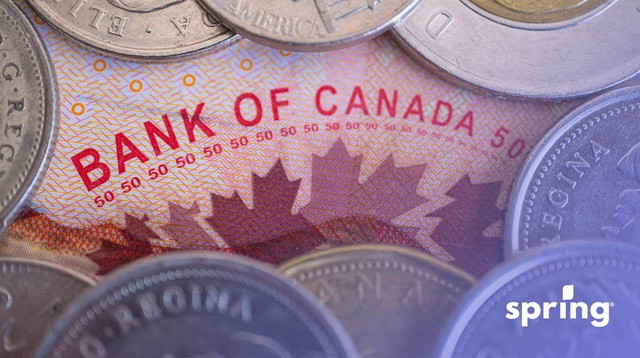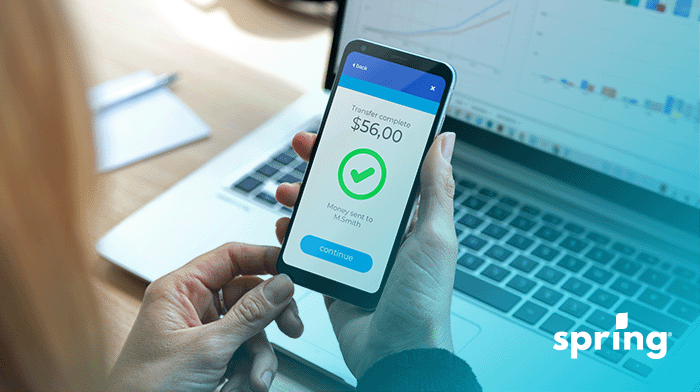The biggest thing to consider when going to pay off your mortgage contract is whether you have an open or closed mortgage. With a closed mortgage, you can only pay it off at certain times. However, with an open mortgage, you can pay off the mortgage at any time.
End-of-Term Mortgage Payments
One of the best times to pay off your mortgage early is at the end of term. That said, if you’re paying off the mortgage in full, you also have to make sure that the mortgage has been discharged. The lender will do this by writing a letter stating that the loan was paid off in full.
Before you make the last lump sum payment on your mortgage, it’s best to discuss it with your existing lender. Technically, you can renew your mortgage up to 4 months before your term expires, meaning you can also pay off your loan within this time period. However, every lender has different stipulations, so it’s best to discuss any lump sum payments with them first.
Lump Sum Mortgage Payments
Lump sum mortgage payments are not just payments used to pay off your mortgage; these are any large payments that go down on the principal amount owed on your mortgage loan. While you may not be able to pay off the full amount of your mortgage doing this, you are able to reduce the amount of interest you’re paying.
If you’re going to choose to go this route, similar to paying off your mortgage in full, you do want to speak with your lender first. Most mortgage lenders allow you to make a large payment every year with no penalties. However, this may only be available at certain times of the year. It also depends on how close you are to your mortgage term ending. Your lender can help you determine the best financial strategy based on your financial situation.
Mortgage Renewals and Unemployment
Even though you were approved for a mortgage based on your cash flow at the time, you still have to get approved for mortgage renewals at the end of your mortgage term. However, it can be simple or difficult, depending on the lender you’re dealing with. If you’re dealing with your current lender, have made all of your payments on time, it’s likely they won’t even check your employment.
If you’re looking to get a new mortgage term with a different lender, then that could be a lot more difficult. This is because a new lender will want to check your credit score as well as your employment. This is because they haven’t dealt with you long enough to know if you’ll make your monthly payments on time or not. Due to this, many choose to use mortgage brokers.
Not Renewing Your Mortgage
If your mortgage is up for renewal but you don’t renew it, then a few different scenarios can arise. Ultimately, it just depends on your lender. In some cases, your lender may automatically renew your mortgage for an open-term loan with higher mortgage interest rates. In other cases, you may be forced to sell the home to pay the outstanding balance, remortgage elsewhere or face action in the court system. This is because the final renewal statement balance of the mortgage or renewal payments is due immediately, and these outstanding debts need to be paid especially if the renewal date has already passed.
What Happens At The End of The Mortgage Term
When you get to the end of your mortgage term, one of two things needs to happen. You either need to renew the mortgage or pay the balance in full. If you’re getting to the end of your mortgage term and selling your home, it might not be in your best interest to not renew your mortgage. In this case, it would be a good idea to discuss your options with your lender in order to avoid any penalties.
That said, you don’t have to go with your existing mortgage lender when renewing your mortgage. You can switch lenders to a new mortgage lender if you’d like to. Not only can this get you a lower interest rate, but it can also get you a better mortgage term. Keep in mind that there could be some fees with this, though, including assignment fees.
What Happens When Your Mortgage Renewal is Denied
While it is rare, there are certain cases where your mortgage renewal can be denied during the renewal process, even if you try the renewal process early. If this happens, it can be a tricky situation. In a case like this, it might be a good idea to speak with a mortgage lender to see if you can get approved by an alternative lender or different financial institutions. However, if this doesn’t work and you can’t get approval, then you may be forced to sell your home in order to pay off the remaining balance of your mortgage.
Fully Paying Off Your Mortgage
If you fully pay off your mortgage when selling your home, there isn’t much you need to do since the title of the home will no longer be in your name. It will be in the new owner’s name. That said, if you pay off the mortgage and still own the home, then you want to inform a real estate lawyer. This is because your lender will be listed on the property’s title as well because you still owe money. Since you no longer own money, you will have to have them removed. This just verifies that the lender no longer has any stake in ownership.
Paying Off Your Mortgage At Renewal in Different Provinces
In Canada, every province has different rules when it comes to mortgage renewals. That said, you can pay off your mortgage in full at renewal, no matter where you live in Canada. This includes British Columbia, Ontario and Alberta.
Mortgage Repayment Rules At Top 5 Banks
While there are plenty of different lending institutions that offer different types of mortgages, the most common banks are the top 5 banks. Each of these banks has different mortgage rules and restrictions. They also all offer very different mortgage rates, whether those are fixed mortgage rates or variable mortgage rates. However, no matter which bank you have a mortgage with, they all offer mortgage refinancing.
RBC
If you get a mortgage with RBC, there are a few different ways you can make extra payments on your principal mortgage amount, which don’t include setup fees, administrative fees, and other additional fees. The first way you can do this is by changing your mortgage payment schedule. You can choose to make your payments:
- Weekly
- Monthly
- Semi-monthly
- Bi-weekly
- Accelerated payments weekly
- Accelerated payments bi-weekly
With an RBC mortgage, you also have the option to make Double-Up mortgage payments. This means that you can make an extra payment between $100 and your mortgage payment amount on any of your mortgage payment dates. You can choose to do this every payment date if you like. This money is then applied to your principal balance.
Lastly, with RBC, you can make a mortgage prepayment once per year, not just on your mortgage anniversary. This means that if you have a closed mortgage, you can put up to 10% of your original principal mortgage amount down. However, you can put any amount down you wish when your mortgage is up for renewal. If you have an open mortgage, you can make principal payments of $500 or higher at any time you like.
TD
RBC isn’t the only bank that allows you to make extra payments and have some flexibility in your mortgage, and so is TD. However, not only does TD allow you to speed up your mortgage payments, but it also allows you to slow them down. Let’s take a look at home.
With TD, you can choose the frequency of your mortgage payments. When you choose payment frequencies like weekly and biweekly, you’re actually making extra annual payments, which reduces the lifetime of your mortgage and helps you pay less interest.
When it comes to your mortgage payments, you have a say in how much you put down. You can reduce your interest and increase your principal payments by paying more than your minimum mortgage payment amount. You can increase your mortgage payments by up to 100%, meaning you can pay double and reduce the life of your mortgage. When it comes to making additional payments, you can make these whether you have an open or a closed mortgage. That said, while you can make lump sum payments on open mortgages at any time, closed mortgages with TD only allow you to make lump sum payments once per year up to 15% of your original principal amount.
If at any point you’re having difficulty making your mortgage payments, you can defer up to only monthly payments one time per year. You can do this up to 4 times over your amortization period. Another great feature is that you can take a payment vacation for up to 4 months. However, you can only do this if you’ve made prepayments to your mortgage.
CIBC
CIBC offers a wide variety of mortgages, including:
- Open mortgages
- Closed mortgages
- Fixed-rate mortgages
- Variable-rate mortgages
- Short term mortgages
- Long term mortgages
The most common types of mortgages are closed fixed-rate mortgages and closed variable-rate mortgages. The rules regarding paying down the mortgage are based on the type of mortgage that you have. That said, here are the general rules regarding CIBC mortgages, whether they’re fixed rates or not.
No matter what type of CIBC mortgage you have, you can increase your regular payments at any time by up to 100%. This means that you can make double payments and you can choose to do this at any time during your mortgage. However, if this doesn’t quite work for you, another option is to increase payment frequency of your mortgage.
If you want to make a large mortgage payment, the maximum amount you can put down is based on the mortgage product that you have. However, you can make a lump sum payment between 10% and 20% once per year. This will be applied directly to your principal amount. If your mortgage is up for renewal, though, you can make any size lump sum payment that you’d like to.
BMO
Another large bank in Canada that offers mortgages is BMO. Just like with the other large banks, a BMO mortgage offers different options to allow you to make large mortgage payments and reduce the life of your mortgage, making you mortgage free sooner. The most common way to do so is by changing your payment frequency. The more often you make your mortgage payments, the faster you pay it down.
With a BMO mortgage, you can also increase your regular mortgage payments. If you can have a BMO Smart Fixed Mortgage, you can increase these payments by 10%. However, any other type of mortgage with BMO allows you to increase your payments by 20%. If you want to increase by more, then there will be a charge.
If you want to make lump sum payments with these mortgages, you can do that as well. The minimum amount that you can put down is $100, and the maximum amount is based on the type of mortgage you have. With a BMO Smart Fixed Mortgage, you can pay up to 10% of the original principal amount once per year. With BMO, you can pay up to 20% on all other closed mortgages.
Scotiabank
With Scotiabank, you can also pay off your current mortgage sooner. You can choose your payment frequency and line up your payment dates with your paydays. They also offer flexible options like making an extra mortgage payment on any mortgage payment date. You can even choose to miss a mortgage payment if you’ve made a previous extra payment.
With Scotiabank, you can also choose to make lump sum payments. You can make a payment of up to 15% of the original principal amount. You can also choose to increase your payment by up to 15% of the current payment that was set for your mortgage. At the end of your term, you can pay off the mortgage in full if you’d like. If you pay it off before the mortgage term ends, the prepayment penalty is based on how much interest you owe for the last three months interest on your term.
Final Thoughts
When it comes to most mortgages, when you can pay off your mortgage and how much depends on the type of mortgage you have. You can usually pay open mortgages off at any time you like. However, with closed mortgages, which are more common, you can make large payments as well, but there are some rules. The simplest time to pay off your mortgage in full, though, is when your term is up for renewal.
When it comes to paying off your mortgage, this includes when you sell your house. Even in this case, you will be charged prepayment penalties if you aren’t within the prepayment privileges. This penalty is calculated based on how long is left on your mortgage term and which bank is providing your mortgage. However, if you’re paying your mortgage off in a lump sum and have a choice, the best time is the end of your term.









